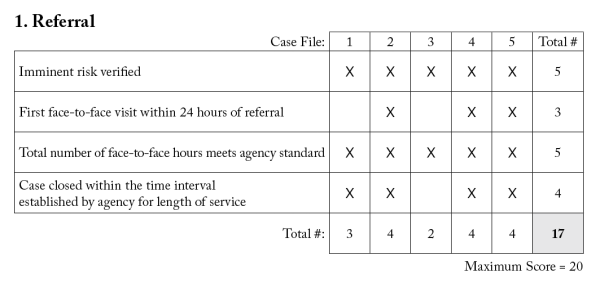Keeping Kids in Families, a national campaign focused on keeping the best interests of children and their families at the center of decision making, recently emerged on the child welfare advocacy scene.
The campaign describes its work as “leading the charge to make sure that all kids have a safe, secure and permanent family. We are doing this by working collaboratively with policymakers and other key stakeholders to develop a federal financing mechanism that aligns policy and practice and helps us to build a child welfare system that is designed to serve more children and families sooner, and ultimately achieve better outcomes.” http://keepingkidsinfamilies.org/about-us/
Keeping Kids in Families is a joint effort of three of the largest networks of private and public agencies working to strengthen the lives of children and families: the American Public Human Services Association (APHSA), the Alliance for Strong Families and Communities, and the National Organization of State Associations for Children (NOSAC).
The organization’s purpose is to “strengthen our nation’s child welfare system through investments in prevention, early interventions and treatments that keep children safe and in permanent families, whenever possible.”
The efforts they seek include:
- Strengthen families and keep children safe in their homes whenever possible, preventing traumatic and expensive entry into foster care.
- Promote evidence informed practices that improve outcomes while also ensuring that we don’t get in the way of practical, low-cost supports that can make the difference for a family.
- Better leverage resources across all levels of government and community supports.
http://keepingkidsinfamilies.org/the-solution
In 2014 the group released its Shared Principles for Aligning Federal Financing to Child and Family Success which include Child and Family Centered Principles, System Centered Principles and Finance Reform Principles.
Read all their Principles here
The Keeping Kids in Families October 2015 newsletter included this legislative update:
“As the Keeping Kids in Families campaign continues to grow and expand its policy influence, we are seeing a number of legislative proposals that align with our work.”
The Family Stability and Kinship Care Act is an example of legislation in line with the Keeping Kids in Families Finance Reform Principles:
- A new outcomes-oriented accountability framework balances oversight and flexibility.
- The federal-state-local partnership includes a guaranteed base funding and a mechanism for risk sharing.
- The federal government establishes accountability across programs and agencies as part of an integrated system.
- Federal child welfare financing is available without regard to the parent’s income
Family Stability and Kinship Care Act, Sen. Wyden (D-Oregon) and Rep. Doggett (D-Texas)
The Family Stability and Kinship Care Act of 2015 calls for greater investments in prevention and early interventions programs that keep children safe and in permanent families, whenever possible. The legislation would allow the use of Title IV-E funds for time-limited family services and provide 25% of expenditures for evidence based programs. Under this legislation, Title IV-B would increase to $1 billion mandatory funding. Title IV-B is the primary federal funding source for IFPS.
An August 5, 2015 press release
from the U.S. Senate Committee on Finance, titled “New Child Welfare Bill Focuses on Keeping Families Together,” provides background on the bill and its importance.
Senate Finance Committee Ranking Member Ron Wyden, D-Ore., was joined by seven other members of the committee today in introducing a bill to keep families together by allowing the nation’s largest child welfare funding stream to support front-end family services to reduce unnecessary foster care stays.
Currently, the majority of federal child welfare dollars is spent on foster care. The Family Stability and Kinship Care Act would give states the flexibility to use federal funds to pay for preventive services that can stabilize families and keep kids out of foster care and safe at home or with kin.
Twenty-nine states, the District of Columbia, and the Port Gamble S’Klallam Tribe in Washington State currently have Title IV-E waivers that have allowed them to test innovative approaches such as investing in front-end child welfare service delivery to help families remain safely together. Wyden’s legislation would allow every state to permanently make these types of investments with federal support.
Read a one-page summary of the bill provided by the U.S. Senate Committee on Finance.
On October 21, 2015 Rep. Lloyd Doggett, D-Texas and Ranking Member of the House Ways and Means subcommittee, introduced H.R. 3781: Family Stability and Kinship Care Act of 2015, a companion bill in the House of Representatives.
Posted by Peg Marckworth

 In 1980 Congress passed the Adoption Assistance and Child Welfare Act in response to findings that child welfare agencies removed children from their parents without first attempting to preserve the family and then failed to provide parents with adequate services for reunification. The new law required states (child welfare agencies) to make “reasonable efforts” to help families stay together or to help reunite them. Congress required courts to make a finding as to whether or not the child welfare agency provided reasonable efforts. If the court made a “no reasonable efforts” finding, then the agency would receive no federal funding while the child was in foster care.
In 1980 Congress passed the Adoption Assistance and Child Welfare Act in response to findings that child welfare agencies removed children from their parents without first attempting to preserve the family and then failed to provide parents with adequate services for reunification. The new law required states (child welfare agencies) to make “reasonable efforts” to help families stay together or to help reunite them. Congress required courts to make a finding as to whether or not the child welfare agency provided reasonable efforts. If the court made a “no reasonable efforts” finding, then the agency would receive no federal funding while the child was in foster care.